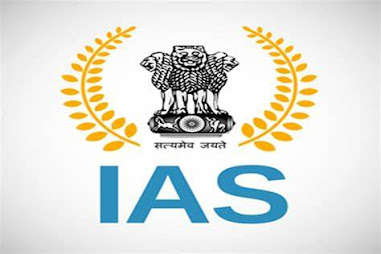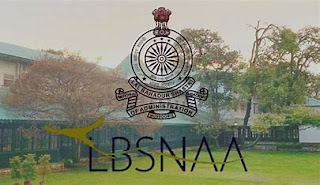Introduction:
Becoming an Indian Administrative Services (IAS) officer is a dream for many students in India. The IAS is one of the most prestigious and sought-after civil services in India. It is a part of the All India Services along with the Indian Police Service (IPS) and the Indian Forest Service (IFS). In this article, we will discuss in detail how to become an IAS officer, including the eligibility criteria, exam pattern, syllabus, and more.
Eligibility Criteria:
- To become an IAS officer, a candidate must meet the eligibility criteria prescribed by the Union Public Service Commission (UPSC). The eligibility criteria include age limit, educational qualification, and nationality.
Age Limit:
- The candidate must have attained the age of 21 years on 1st August of the year of the examination. The upper age limit for the exam is 32 years for general category candidates. The upper age limit is relaxed for candidates belonging to reserved categories, such as Scheduled Castes (SC) and Scheduled Tribes (ST), Other Backward Classes (OBC), and persons with disabilities (PwD).
Educational Qualification:
- The candidate must have completed a bachelor's degree from a recognized university. Candidates who are in their final year of graduation are also eligible to apply for the exam. However, they must provide proof of passing the degree examination at the time of the interview.
Nationality:
- The candidate must be a citizen of India, a subject of Nepal, a subject of Bhutan, or a Tibetan refugee who came to India before 1st January 1962 with the intention of permanently settling in India.
Exam Pattern:
- The IAS exam is conducted in three stages, namely, the Preliminary Examination, the Main Examination, and the Personality Test (Interview).
Preliminary Examination:
- The Preliminary Examination is the first stage of the IAS exam. It consists of two papers, namely, General Studies Paper I and General Studies Paper II (CSAT). The General Studies Paper I consists of 100 questions, and the General Studies Paper II consists of 80 questions. The duration of each paper is 2 hours. The General Studies Paper I covers topics such as History, Geography, Indian Polity, Indian Economy, Science and Technology, and Current Affairs. The General Studies Paper II tests the candidate's aptitude and comprehension skills.
Main Examination:
- The Main Examination is the second stage of the IAS exam. It consists of nine papers, including two qualifying papers and seven merit-based papers. The two qualifying papers are English and one Indian language. The seven merit-based papers include Essay, General Studies I, General Studies II, General Studies III, General Studies IV, Optional Paper I, and Optional Paper II. The duration of each paper is 3 hours.
Personality Test:
- The Personality Test is the third and final stage of the IAS exam. It is conducted to test the candidate's overall personality, communication skills, leadership qualities, and mental ability. The test is conducted by a panel of experts and is usually held in Delhi.
Syllabus:
- The syllabus for the IAS exam is vast and covers a wide range of topics. The syllabus for the Preliminary Examination covers topics such as History, Geography, Indian Polity, Indian Economy, Science and Technology, and Current Affairs. The syllabus for the Main Examination covers topics such as Essay Writing, Indian Language, English Language, General Studies I, General Studies II, General Studies III, General Studies IV, and Optional Paper I and II. Candidates are advised to check the official notification for the detailed syllabus.
Application Process:
- The application process for the IAS exam is online. Candidates can apply for the exam by visiting the official website of UPSC and filling the online application form. The application fee forGeneral and OBC category candidates is Rs. 100, while there is no fee for SC/ST and female candidates. The application fee can be paid online through debit card, credit card, or net banking.
Preparation Strategy:
- Preparing for the IAS exam requires hard work, dedication, and a well-planned strategy. Here are some tips that can help candidates prepare for the exam:
- Understand the exam pattern and syllabus: Candidates should thoroughly understand the exam pattern and syllabus before starting their preparation. This will help them to plan their preparation accordingly.
- Make a study plan: Candidates should make a study plan and follow it religiously. They should allocate enough time for each subject and revision.
- Read newspapers and magazines: Reading newspapers and magazines regularly can help candidates stay updated on current affairs and improve their knowledge of various topics.
- Refer to standard books: Candidates should refer to standard books recommended by experts for each subject. They should also make notes while studying.
- Practice previous year question papers: Practicing previous year question papers can help candidates understand the exam pattern, difficulty level, and the types of questions asked in the exam.
- Take mock tests: Candidates should take mock tests to assess their preparation level and identify their weak areas. They should also analyze their mistakes and work on improving them.
- Stay motivated: Preparing for the IAS exam can be a long and tiring process. Candidates should stay motivated and focused on their goal.
Conclusion:
- Becoming an IAS officer is a challenging and rewarding career option. It requires hard work, dedication, and a well-planned strategy. Candidates who are aspiring to become an IAS officer should thoroughly understand the eligibility criteria, exam pattern, and syllabus before starting their preparation. They should also make a study plan, refer to standard books, practice previous year question papers, and take mock tests. With the right approach and hard work, anyone can crack the IAS exam and fulfill their dream of becoming an IAS officer.





Comments
Post a Comment